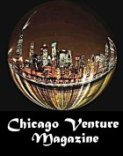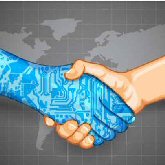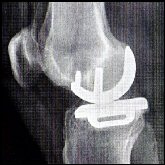With the passing of Steve Jobs, we hear well deserved tributes on a daily basis. But the question, “Where is China’s Steve Jobs,” is a in another category. It captures intense frustration and a strong desire for Chinese entrepreneurship. Where are their innovators? China keenly feels a lack of intellectual capital building–a process that takes decades. It lacks the established business culture we enjoy in the US. While the need for building is great, the desire for a positive self-image is huge. How do you pass on knowledge to a business person who sorely needs it but cannot accept it because of culture? The answer may lie in Chicago. China enjoys a special connection to this city. This may be an opportunity for our thought leaders to step up.
I cornered the speakers and pointed out that America was once a colony that supplied raw materials to Great Britain, which used those cheap resources to manufacture goods and sell them to our colony and the world. England owned the catbird seat. Isn’t China that country now?
The answer surprised me. Structural change has altered that dynamic. Manufacturing is now at the bottom of the food chain–it goes wherever labor is cheapest. Like Japan before it, China has already experienced wage growth and is starting to outsource work to places like Viet Nam. Meanwhile, raw material prices are booming. About $500 counts toward the Chinese export of each iPhone when their real participation is only $30 in assembly.
China doesn’t want to manufacture cheap products. It wants to produce quality goods for its own growing middle class. It suffers two structural problems: From a business perspective, the country is like a baby that needs to mature. At the same time, its culture is an old man stuck in tradition.
I’m sitting among international business leaders at an event, WHY CHINA? WHY NOW? hosted by IERG Chicago—the International Executives Resources Group—a non-profit organization that creates and disseminates knowledge and ideas by sharing up-to-date information. Find them at www.iergonline.org
I’m here by special request of MIT and should cover yet another event this same evening, but can’t break away from the compelling, counterintuitive ideas presented here. The view of the city is spectacular, the food is great, and I am always surprised by the candor and warmth I feel when talking with Chinese nationals and those in long association with them. Anyone that deals with these people falls in love with them. I harbor serious reservations about trade with China, but I’ll reserve that for another article and highlight the positives here.
The panel surprises me with their depth and knowledge, and their enthusiasm for Chicago:
- • Bruce Montgomery—“Chicago is the new center for thought leadership.”
- • Elizabeth Harrington—“Chicago is a growth producer.”
- • Ms. Jia Zhao—“Chicago is unique. It’s such a great place to work. It’s the only city in the US that receives young business leaders from Shanghai. No other Chinese city has formed such a relationship, but the Shanghai/Chicago connection is long in history.” (The quote about Steve Jobs comes from this gracious lady who enjoys a lifetime of profound experiences.)
- • Stephen Markscheid—“China has always been 25% of the world’s population and 25% of the world’s GDP. Get used to it.”
- • Basile Waite—“China has overtaken the US as the largest consumer of energy”
- • Tracy Xu—“Over 70% of the businesses in China lose money, but China takes a long-term perspective.”
Each of these speakers brings a different perspective:
Bruce Montgomery
CEO, Wi-Fi Technologies, LLC
Bruce performed ably as moderator. He’s cordial, professional, well spoken, and concise. He knows how to bring out the best in a speaker and how to prepare an audience. One must assume he’s done this before. The first speaker is Elizabeth Harrington:
Elizabeth Harrington
Executive Director, Chicago-China Economic Development Center.
The US needs to attract 1 trillion in foreign investment in the next five years and the Chinese are now the wealth creators. GDP in the US has grown by a factor of 1.5 in 10 years. China has grown 10 times. The Chinese now have rising wages and spending power.
Reduced wages in the US and the currency gap provides an opportunity for us. For 20 years, foreign investment has gone into China. Now China is investing. 30% is in M&A, in areas like Energy, especially clean tech, which they need so badly, as well as Metals, and Real Estate. The residual investment goes to Industry. Only 9% goes to the US because they perceive us as protectionist. Investments are typically under 10M and usually much less. The target is small businesses and the method is long-term relationship.
Investors Take Note–China needs to re-deploy from US Treasuries to private companies. Chicago is in a unique position to seize Chinese outbound investment in both Real Estate and M&A. President Hu said Chicago is the best place to invest. We have a diverse economy. We are the headquarters for 30 of the Fortune 100 companies and the Chinese like to work with their peers. New York, on the other hand, is primarily financial. LA is a port city and big in entertainment.
Chicago is Key–Despite many blunders, Chicago has worked hard to be business friendly. We are a city of immigrants. We believe in free trade. Even with a history of machine politics, we’re all about business. As a result, we have five of the most successful Chinese companies in the Chicago area, including the only one to that attracted Warren Buffett’s investment dollars. Contrary to popular opinion, we have a deep culture of innovation and China wants to acquire high technology and innovation. Chicago has great universities, a good workforce, and it’s a livable city. We have financial services in the CME and CBOT, We have education in Northwestern University, the University of Chicago, the University of Illinois, and other top schools. Our logistics is amazing. You can travel to any other major city in the US in one day and get back for dinner. Health Care is strong with Abbott Labs, Baxter, and the Biotech Conference. Our service industry is alive with legal, banking, and consulting. We also have ongoing programs like the Chicago-China Friendship Initiative
Chicago helps visitors find the right people and engage them in the business community, then we stay connected for the long-term to make sure they are successful.
Ms. Jia Zhao
Attorney at Baker & McKenzie
She now calls Chicago home because it’s such a great place to work. With her long history in China, Jia Zhao told some astounding stories. Years ago, China was closed to the world. They decided to send students to learn about US laws. They wanted to know about such concepts as separation of power—could it really be true?
According to Ms. Jia Zhao, this event, titled “Why China? Why Now?” could once have been dubbed “Why America? Why Now?” 40 years ago, in ’72, Kissinger’s announcement of Nixon’s visit gave a big shock to the Chinese people. The US was their number one enemy. Why come alongside us? The Cultural Revolution still smoldered. Jia Zhao held a post in the foreign ministry at the time and attended Nixon’s first dinner in China. This is a woman who has been there and done that.
A Need for Law–China started opening up in the late ‘80s. In the ‘80s and early ‘90s their legal system started to develop. Joint venture law. Economic contract law. Owned enterprise law. Technology contract law. Enhanced compliance. Stricter procedural requirements. Greater supervision of foreign representatives.
Culture Shock–The Chinese find some concepts culturally bewildering: Why should there be a tax deduction for charity? After all, noble deeds should be associated with noble motives. All their business practices reflect a planned economy. Transparency is improving but still an issue. The idea of government serving the people is alien and new and needs to be worked out over time. But the younger people are more open to change and to outside ideas. Businesses are becoming more service oriented. China still has a long way to go. You can find both good and bad. It’s a work in process.
China’s Top Challenges–Finding talented workers and retaining them—this in spite of the huge population. Increasing costs. Internal competition with state-owned enterprises. Intellectual Property enforcement. Equal treatment. Transparency. Market access in services. Investment restrictions—they have categories of investment–Encouraged, Restricted, Forbidden.
Jia Zhao offers this guidance to American companies–When negotiating in China, take the time to explain to them why things are the way they are in the US. When you don’t understand something about China, say so. Engage in a strategic, rather than tactical dialogue. China is top-down. The US is bottom-up. Public awareness and the understanding of complex law is new. Develop your business with China on the basis of long-term friendship.
Stephen Markscheid
CEO, Synergenz Bioscience, Inc.
China is emerging from the Third World rapidly. They have exceeding Japan in GDP and soon will exceed the US. Over the last 30 years, miraculous growth has been driven by foreign investment. That has produced exports.
Clear Strategy–China’s Five Year Plan makes their business strategy clear. They want to move from an export driven economy to one that manufactures for its own people. They want to build their own brands. They lack the marketing expertise to carry it out.
Trends–Culturally, the Chinese people like to produce and save, while Americans like to consume and borrow. Our SEC rules require Chinese businesses to have American nationals on their boards. Banks won’t invest in companies that are 100% Chinese run.
Basile Waite
Director, Ops-Asia LLC
China’s economy will double by 2020. They will add the equivalent of the UK every year. They’re still dependent on coal and pollution is terrible, but they’re committed to Kyoto protocol and have launched a renewable energy drive. A look at their Five Year Plan reveals their desire for big projects to come online as fast as possible. They want renewable energy to reach 20% by 2020. They want four nuclear plants by 2020 but now realize that’s not feasible. They lack safety expertise and soft skills.
Opportunities–Their top-down planning changes the way projects get implemented and causes incongruencies. That makes opportunities for Chicago companies. We can fill the knowledge and experience gap.
Hunger for Knowledge–Wind & solar power don’t have all the pieces together. The Government is driving it but the knowledge base isn’t there. China knows how to manufacture but doesn’t know how to grow internationally on their own. They need to partner with foreign companies.
Learning–China has a tremendous capacity for learning. They’re good at building new highways and trains. What they lack are the kinds of knowledge bases that take decades to build. People are driving BMWs with a bicycle mentality. This opens the opportunity to share experience with them.
Tracy Xu
Independent Consultant, formerly with AIG.
Tracy offers a young perspective. She finished college in ’93 as English major and never expected to be here in Chicago. When she worked for Chinese government, she found the bureaucracy an obstacle. She worked for the US government to find out what was different.
The Long View–Over 70% of companies in China lose money, but China takes a long-term perspective. One example is A.O. Smith. The company lost money for years. Now it’s the most profitable company doing business in China. It’s the largest manufacturer of water heaters.
Interesting points—
There is no need for insurance in China because the government owns everything.
Wealth has exploded. China is second only to the US in people with over $1M in assets. China has pushed art, rare diamonds and wine to high prices. They bought Chairman Mao by Andy Warhol for $19M. Chinese will buy a downtown condo building in Chicago for cash over a weekend.
The US formed the EB-5 program to attract foreign investment to the US. 70% of all applicants are Chinese. China’s middle class is rising and more demanding of services and education.
The educational system has not yet reformed. When people graduate, they need a re-education to business reality. This creates an opportunity for the US companies to fill a void in services.
Not long ago, China’s people lived in micro government housing. Now, in the metropolitan areas, luxury apartments and single-family houses abound. These units cost twice what they do in Chicago.
A.O. Smith Case Study—The company lost money for years but has now evolved into one of the most profitable companies doing business in China.
10 years ago, all appliances sold at department stores. The company decided not to limit themselves to one distributor.
When making a purchase, Chinese like to gossip to friends. When they buy and when they complain, they want to talk to the owner.
During a price war, A.O. Smith refused to discount their units—instead they consciously decided to be the most expensive producer, but with the best service. The strategy worked. People figured, if they’re so confidence, they must be good.
The General Manager (top officer) is the most important employee in a Chinese company. A.O. Smith found that their American and Taiwanese managers didn’t fit the culture, so they came to China with attitude of learning everything the Chinese way. They finally found the right leader and took him under their wing for two years before putting him in charge.
Chinese companies are getting much more sophisticated. There are plans to buy out US distributors. This is a big opportunity for an influx of money to the US.
Conclusions
Intellectual property—many Chinese respect IP but not the ones with tanks. The military itself is breaking the IP laws. Chinese companies are fighting among each other on this issue. They break IP law when they have no economic alternative. The rising middle class and private enterprise are pushing for IP law. An interesting point–Sometimes counterfeit products help promote the real thing.
US companies can’t get patents in China. This is a big problem. Culturally, technology is seen as the legacy and heritage of the common people and should not be hoarded. This attitude is evolving, but is still ripe in the hearts of the Chinese.
Strengths–China is getting strong in Chemistry and Engineering. 800,000 Chinese enter Engineering programs in US universities every year. Once they intended to stay. Now they go back without hesitation. The US is in a depression. China is not.
Human Rights–As an Evangelical Christian, I’m concerned about human rights, so I asked a panelist about the repression of Christians. Response: Persecution is going on because the government has not yet decided which way to go on the issue. Meanwhile, people all across the country are criticizing the government openly—more than we might think—on all sorts of issues having to do with their economic and social lives. There is a great deal of turmoil and everything is in flux. There exists and ever-widening desire for freedom of expression.
That’s what I heard. What did you hear?
.
GO BACK TO PART 1 – CHICAGO’S NEW SOUTH SIDE
.
Find Chicago Venture Magazine at
www.ChicagoVentureMagazine.com Comments and re-posts are welcomed and encouraged. This is not investment advice – do your own due diligence. I cannot guarantee accuracy but I give you my best.
Copyright © 2011 John Jonelis – All Rights Reserved.








































































































































































Pingback: CHICAGO’S NEW SOUTH SIDE | Chicago Venture Magazine